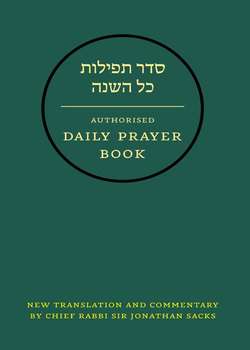Читать книгу Hebrew Daily Prayer Book - Jonathan Sacks - Страница 10
B. Mirror-image Symmetry
ОглавлениеMany Torah passages are constructed in the form of a mirror-image symmetry, technically known as chiasmus: a sequence with the form ABCCBA, where the second half reverses the order of the first. A precise example is the six-word commandment that forms the central element of the Noahide covenant (Genesis 9:6):
“[A] Who sheds [B] the blood [C] of man [C] by man [B] shall his blood [A] be shed.”
This is more than a stylistic device. It is the expression of one of the Torah’s most profound beliefs; namely, the reciprocal nature of justice. Those who do good are blessed with good. Those who do evil, suffer evil. What happens to us is a mirror image of what we do. Thus form mirrors substance: mirror-image symmetry is the literary equivalent of a just world.
Some prayers have a mirror-image structure. Most of the paragraphs of the Amidah, for example, finish the same way as they begin (“at the end of a blessing one should say something similar to its beginning', Pesachim 104a). So, for example, the sixteenth blessing begins, “Hear our voice” and ends “Who hears prayer”. The eighteenth begins, “We thank You” and ends “To whom it is fitting to give thanks.” The Amidah as a whole begins with a request to GOD to help us open our mouth in prayer. It ends with a request to GOD to help us close our mouth from deceitful speech.
According to Rav Joseph Soloveitchik, the first and last three blessings of the Amidah stand in a mirror-image relationship. The last uses the same key words as the first: kindness (chessed) and love (ahavah). The penultimate has the same subject as the second: the gift of life and the hidden miracles that surround us constantly. The seventeenth and third are both about holiness. Thus the end of the Amidah is a mirror-image of its beginning.
This explains why Aleinu – the prayer with which most services end – is constructed in a sequence opposite to all other prayers. Others move from the universal to the particular, but Aleinu reverses the order, beginning with a hymn to particularity (“Who has not made us like the nations of the world”) and ending with one of the great prayers for universality, when “all mankind will call on Your name”. Aleinu gives each service a chiastic structure. Previous prayers have been A-B (universal-particular); Aleinu is B-A (particular-universal).
As we will see, many of the other structuring principles are three-part series of the form A-B-A.
